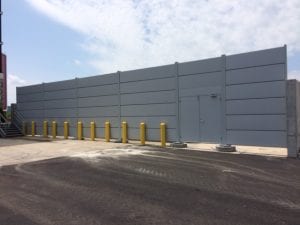How the construction materials of a room impacts its sound
The difference in sound can be heard at home, with an easy television setup. Sometimes, regardless how loud you turn the television, or the CD speakers, you just won’t be able to hear clearly. This implies that there are too many absorptive materials in your room and you need outdoor air compressor enclosure.
Sound echoes off every surface it hits, whether that is a partial or complete reflection. The reflections then bounce off other surfaces, and then others, until the sound dies. A room with excessive echo will make music sound blurry and muddy, while a room with too much absorptive materials or qualities will make the music sound dry and dull. This is why people felt the requirement of a high school band room.
Do you want to know what is a hammer mill? A hammer mill is a mill whose purpose is to crush or shred aggregate material into smaller pieces by the repeated blows of little hammers. These equipments have various industrial applications.
A proficient interior designer will work with the acoustics of a building in mind. Assessments can be done during the construction of the building to ensure that it is suitable for the desired purpose. If you are moving into a new space, and the acoustics are not suitable for your requirements, there are some minor changes that can be made to a room to change the room reverb.




Comments
Post a Comment